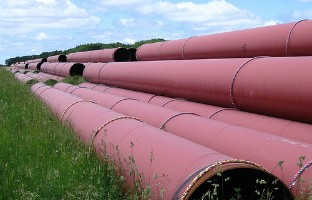Pipeline to disaster: Obama and the Alberta tar sands

Sunday morning in jail was harder than I had imagined it would be. For one thing, no one had slept much. The central cell block in the Washington, D.C., jail has steel slabs with no mattresses, no pillows, no sheets. It was stifling hot and noisy, and we were all hungry—we'd each been given one baloney sandwich over the last 18 hours. And we were uncertain what the future held. When we'd been arrested the day before in a peaceful environmental protest outside the White House, the best guess was that we'd be processed and released by nightfall. But the guards were saying (correctly as it turned out) that we'd be lucky to be out by Monday evening.
I could feel my own courage flagging a bit along with that of the 40 or so other men up and down our cell block. I knew we represented a very wide range of faiths, including a pretty good showing for "none at all," so a regular church service was not in order. But for some reason I remembered one of my favorite spirituals. It's a classic call-and-response song, so simple that even someone who can't carry a tune can lead it: "Have you seen the Light? / Certainly, Lord / Have you seen the Light? / Certainly, Lord / Have you seen the Light? / Certainly, Lord / Certainly, certainly, certainly, Lord."
It's also endlessly adaptable, as singers demonstrated in the civil rights movement (under much harsher conditions than we were facing). So here's how it sounded that morning in late August: "Have you been to the jailhouse? / Certainly, Lord" and "Have you been in cuffs? / Certainly, Lord" and "Would you do it again? / Certainly, Lord."




